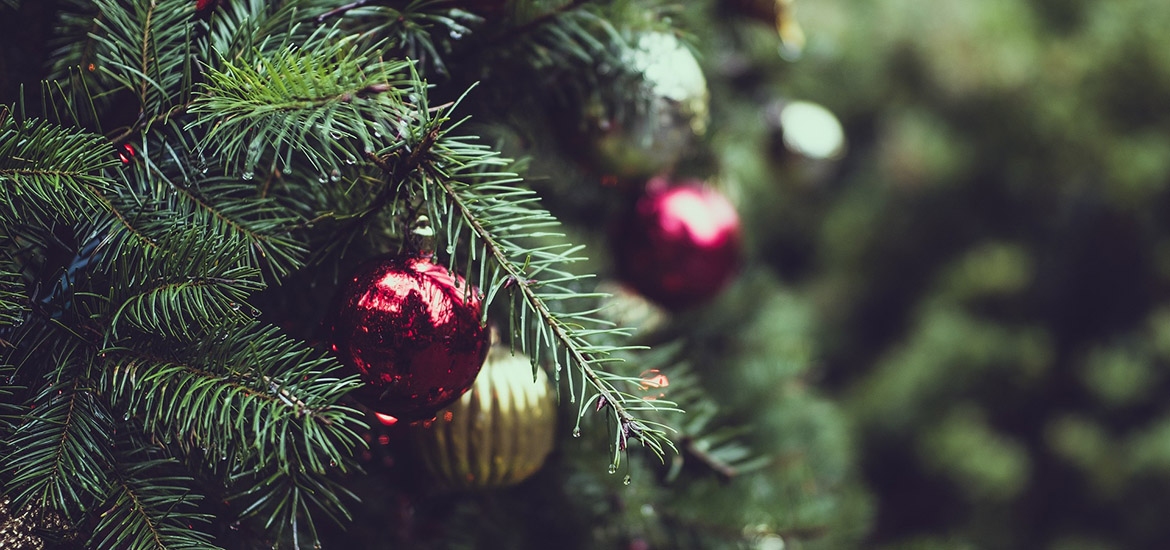Some Christmas traditions are maintained all over Spain, like dinner on Christmas Eve (24th December), lunch on Christmas Day (25th December), dinner on New Year’s Eve (31 December), lunch on New Year’s Day (1st January) and lunch on Epiphany (6th January), the last day of the Christmas season.
Nativity scenes and the Three Wise Men
In Ibiza, and in the rest of Spain, we traditionally set up the nativity scene at home, not only in churches and local public spaces. In case you're not familiar with this custom, the nativity scene is a representation of the birth of Jesus with small figures made out of different materials. This scene can be more or less complex depending on the elements used and the perspectives sought. This custom was born in Italy but it’s travelled across Europe and is now found in France and Germany too.
Another Spanish tradition celebrated in Ibiza is Twelfth Night (or Epiphany Eve), as a tribute to the gifts brought by the Three Wise Men to Jesus upon his birth. So according to this custom, on Twelfth Night, these three generous kings sneak into every house when everyone is asleep and leave presents for kids and adults before the sun rises on the 6th. Another part of this tradition is the Epiphany-themed procession or parade in towns and villages. This is held on the evening of 5th January, heralding the imminent arrival of the Three Wise Men laden with presents. Nowadays, children receive masses of presents, but until a few decades ago, Twelfth Night was are more frugal in Spain, with only one or very few surprises for the children depending on the household economy.
 A traditional nativity scene. © Pixabay
A traditional nativity scene. © Pixabay
Christmas traditions in Ibiza: a centuries-old legacy
Spain also has local traditions highlighting the singularity of each region as a result of the influences and legacies received over their history. Ibiza is no exception. Being an island, we’ve been able to preserve two Christmas traditions that are part of our very own cultural legacy: the Caramelles de Nadal and Salsa de Nadal.
Caramelles de Nadal
The Caramelles de Nadal are musical compositions played on Christmas Eve during Midnight Mass. These are archaic pieces which are believed to be as much as five centuries old. These songs announce the birth of Jesus in three acts and are sung by the choir called the escuadres de caramelles in charge of the caramelles. The flute, the espasí (a sword-like metal instrument), the drum and the castanyoles (castanets) are the traditional Ibizan instruments that accompany the singing, with its sa redoblada (a repetition that closes each musical verse and seems to be of Maghrebi origin). Declared Cultural Property, these compositions are a heritage gem that one can listen to on Christmas Eve in the churches of Puig de Missa in Santa Eulària des Riu, Sant Antoni de Portmany and Sant Josep.
 Caramelles de Nadal. © Ibiza.travel
Caramelles de Nadal. © Ibiza.travel
Salsa de Nadal
One of the widespread Christmas traditions in Ibiza is this singular and rich dessert, which is unlike any other in Spain. Made with honey, sugar and ground almonds, Salsa de Nadal could be likened to a liquid turron, but unlike this typical Christmas nougat eaten in every Spanish home, the Salsa de Nadal includes other ingredients which make it even more special: chicken stock or chicken and lamb stock, saffron, cinnamon, eggs, salt and pepper. The same as with the hierbas ibicencas liquor, each household had –or has– its own recipe and usually families make enough to last the entire Christmas holiday. It’s hard work to both make and keep, as you have to boil the sauce every two or three days to make it last longer. Nowadays, some Ibizan people prefer to prepare the Salsa de Nadal with water instead of meat stock as it’s milder and suits modern tastes better.
 Salsa de Nadal. © Visitasantaeulalia.com
Salsa de Nadal. © Visitasantaeulalia.com
Main picture: Pixabay





